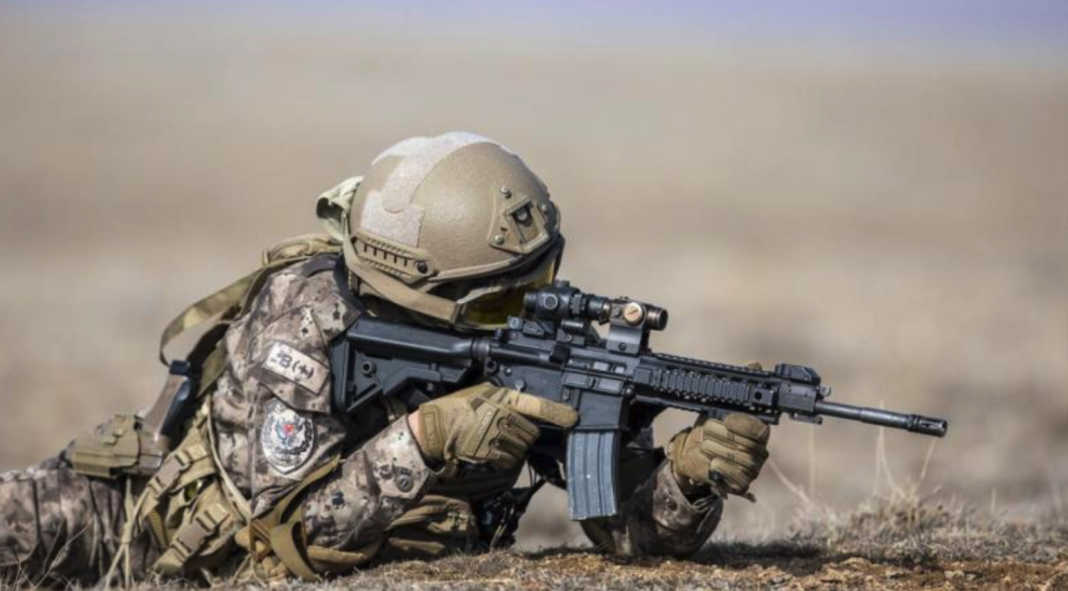Turkey’s President Recep Tayyip Erdogan recently announced that Turkish forces had successfully neutralized the current leader of the Islamic State (IS), Abu Hussein al-Qurayshi following a raid on his location in northern Syria. Although Erdogan was enthusiastic about this achievement, independent sources could not verify the claim. The Associated Press suggested that operatives of Turkey’s intelligence service “MIT clashed with IS militants on a farm in the village of Miska in Aleppo province late Friday night. As the fighting intensified, Al-Qurayshi, who was hiding in a building on the farm, blew himself up.” Regardless, if Turkey played a role in further weakening IS, this is a net positive. Does this recent act suggest that Ankara is getting serious about fighting terrorism? By Sinan Ciddi, Foundation for Defence of Democracies on May 4, 2023.
It remains to be seen. Ankara’s involvement in the Syrian theater over the last decade has been less than sincere as far as fighting terrorism goes. Following the outbreak of the Civil War, Erdogan became fixated on regime change in Damascus, with no discernable strategic goal. The desire to topple Assad became the primary goal for Erdogan, who over time became comfortable turning a blind eye to the territorial spread of IS along its southern border in Iraq and Syria. Images of IS terrorists besieging the town of Kobane in 2015, with a column of Turkish tanks simply watching angered the international community, forcing Erdogan to finally relent and allow the Iraqi Peshmerga to intervene and prevent further IS atrocities.
More worryingly, until Ankara permitted coalition fighter aircraft to use Incirlik air base to strike IS targets in late 2015, Erdogan, spurred on by Prime Minister Ahmet Davutoglu transformed Turkey into what many referred to as a “Jihadi Highway”. This nickname referred to Turkey providing unrestricted passage to scores of radical persons to transit through Turkey, into Iraq and Syria to join the ranks of IS. Why? So they could continue to fight against Assad and hopefully depose him.
Veteran investigative Turkish journalist, Can Dundar elicited Erdogan’s fury when he disclosed evidence of Turkish trucks belonging to MIT, transporting heavy weapons across the Turkish border, presumably into the hands of radical groups. On the one hand, Erdogan appeared to be helping the campaign against IS by permitting airstrikes, while on the other, he was supporting radical groups such as Jabat Al-Nusra and Hayat Tahrir Al-Sham, and their fight against Assad. Over this time, a view emerged in the West that Turkey was actively supporting terrorist elements across the region.
As things stand, Ankara continues to back a variety of radical groups inside northern Syria, based on the premise that they are helping Turkey fight off another manufactured enemy in Syria: the Kurds. Syrian Kurdish forces under the umbrella of the Syrian Democratic Forces (SDF), that is a partner of the United States have proven instrumental in breaking the backbone of IS, all while being vilified and militarily targeted by the Turkish military and its radical Islamist partners on the ground. While Erdogan has now abandoned his quest to topple Assad, he is fixated on undermining the very existence of Syrian Kurds in a unified Syria.
Why? Erdogan peddles the brazen lie that the SDF, has the same historical goal as its parent organization in Turkey (the Kurdistan Workers Party-PKK): to wage a secessionist/terrorist campaign. Nothing could be further from the truth. The SDF has made no threats against Turkey and is not likely to. This is more about scare tactics on the part of Erdogan to woo Turkish voters and convince them of a terror threat which does not exist.
So back to the al-Qurayshi killing. What is Erdogan’s motive here? It is likely based on a calculation that following the May 14 elections in Turkey, Erdogan will need a reset with Washington. To demonstrate this, he is eager to convince Washington that Ankara can work to eliminate the remnants of IS. This is definitely welcome news for Washington, but whether Erdogan will be in power in a month’s time is far from certain.
Sinan Ciddi is a non-resident senior fellow at the Foundation for Defense of Democracies (FDD), where he contributes to FDD’s Turkey Program and Center on Military and Political Power (CMPP).
By Sinan Ciddi, Foundation for Defence of Democracies on May 4, 2023.

